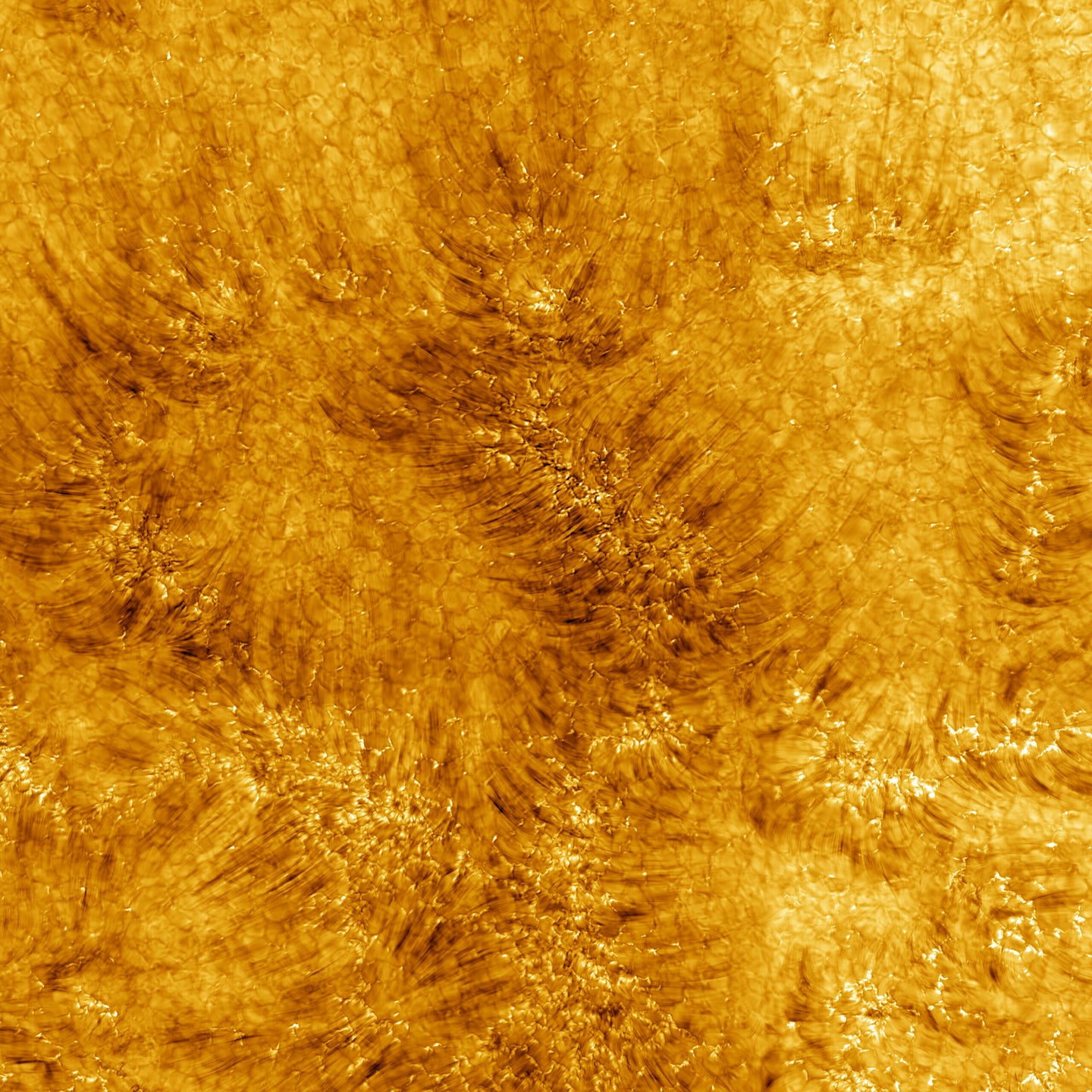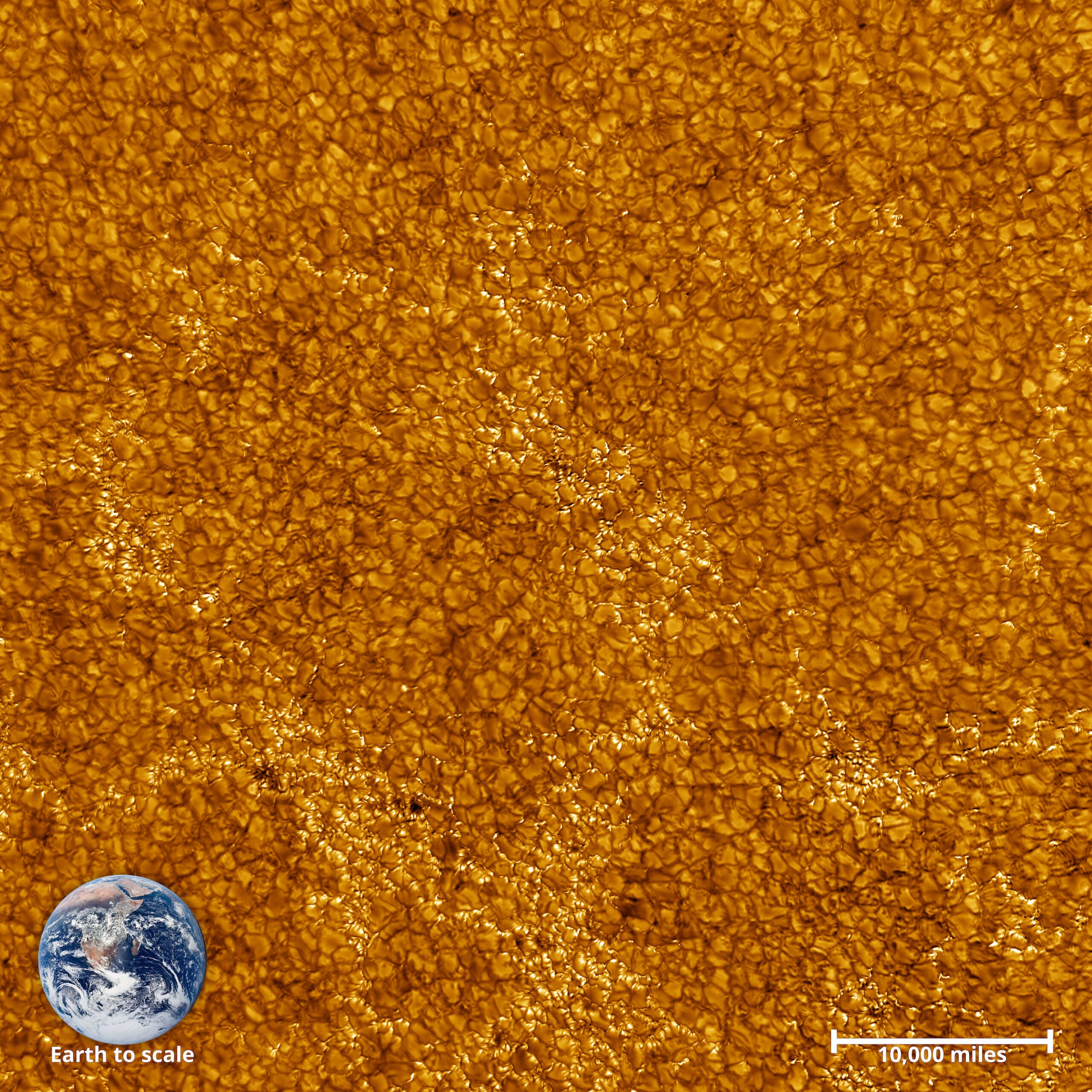
In recent months, the James Webb Space Telescope (JWST) has dazzled us with breathtaking shots of galactic collisions and phantom galaxies, while Hubble continues to churn out exquisite views of distant nebulas and far-off star clusters. But now, our very own sun gets in the limelight as the focus of study for the National Science Foundation‘s (NSF) newly inaugurated Daniel K. Inouye Solar Telescope.
The Inouye Solar Telescope is the world‘s most powerful, and to celebrate its first successful year in its Operations Commissioning Phase (OCP), the NSF has released two stunning photos of our sun, as never before seen.
Related: On Hubble’s 32nd birthday, NASA shares a photo of 5 close-knit galaxies
About the new Inouye Solar Telescope Images
The new images detail the Sun’s chromosphere, which is the area of the atmosphere above the surface. The telescope captured an area of 51,263 miles using the hydrogen-beta line, a visible wavelength emitted by the hydrogen atom. The telescope’s goal is to gather data about solar physics and space weather that affects life on Earth.

“NSF’s Inouye Solar Telescope is the world’s most powerful solar telescope that will forever change the way we explore and understand our sun,” said NSF Director Sethuraman Panchanathan. “Its insights will transform how our nation, and the planet, predict and prepare for events like solar storms.”
The Inouye Solar Telescope is situated on sacred land significant to native Hawaiians, and the Inouye Solar Telescope Native Hawaiian Working Group advised the project on cultural matters during construction. Since the launch of the OCP in February of this year, the telescope, which was a 25-year endeavor, has collected data for over 20 projects and worked in coordination with NASA‘s Parker Solar Probe and ESA/NASA’s Solar Orbiter.
While we’re keen to see all that JWST and Hubble discover across the universe, these new Inouye Solar Telescope photos have us just as excited to see what will be discovered in our neighborhood next.
The post Turn up the heat with these fiery, up-close images of our sun appeared first on Popular Photography.